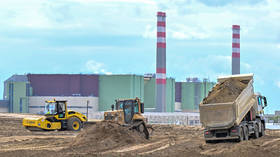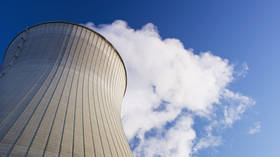Russia signs key nuclear deal with NATO member

Russia’s state-owned atomic energy corporation Rosatom signed an agreement on Friday with Hungarian officials to commence construction on two reactors for the Paks-2 nuclear power plant.
“Transitioning to the direct construction phase gives us the green light to start producing the main power equipment,” Rosatom’s Alexander Merten told RIA Novosti, after inking the deal with the general director of Paks, Gergely Jakli, in Budapest.
The Paks-2 project is of crucial importance to Hungary and nearby EU countries, said Gergely Gulyas, the head of Prime Minister Viktor Orban’s office, adding that construction ought to begin in the spring of 2024.
Located about 100 kilometers from Budapest, Paks is Hungary’s only nuclear power station, operating four VVR-440 reactors of Soviet design to produce about half of the country’s electricity. Adding two newer VVR-1200 reactors would roughly double the plant’s capacity, which Orban’s government has long sought to do in order to bolster Hungary’s energy independence.
Budapest first made a deal with Moscow to build two new reactors in late 2014, but it took years to obtain the necessary permits from the EU. The European Commission finally approved changes to the contract and financing in May. The initial contract envisioned Russia providing a state loan of €10 billion to cover most of the estimated €12.5 billion cost of the project.
The project is one of the reasons Hungary has vetoed any possibility of EU nuclear sanctions against Russia in connection with the conflict in Ukraine, which other members of the bloc have proposed over the past year. Last month, Rosatom noted that many Western companies were also involved in the project.
“General Electric will supply the turbine generator equipment, the French Framatome and the German Siemens will supply the automatic process control system (APCS), and construction work will be carried out by Hungarian, German and other contractors,” the company said.
Preparatory work is already underway to erect auxiliary buildings, warehouses, and office buildings, according to Rosatom.












